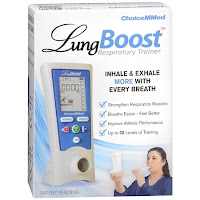Sleep apnea often goes unrecognized and untreated, yet it affects as many as 18 million Americans alone. Sleep apnea is a condition that affects your breathing during sleep in one of three of ways:
- Obstructive Sleep Apnea – The most common type, obstructive sleep apnea occurs when the soft tissue in the back of your throat relaxes and blocks the airway, disrupting breathing and causing snoring.
- Central Sleep Apnea – Much less common, central sleep apnea occurs when the brain fails to send signals to the muscles that control breathing, disrupting normal breathing and sometimes causing snoring.
- Complex Sleep Apnea – The least common, complex sleep apnea is a combination of both obstructive and central sleep apnea.
All forms of sleep apnea disrupt normal sleep cycles as breathing is interrupted throughout the night, typically for 10 to 20 seconds, up to hundreds of times per night. Left untreated, sleep apnea can lead to: diabetes, heart disease or heart failure, stroke, weight gain and high blood pressure. While identifying sleep apnea on your own can be difficult – most people don’t remember waking up during the night – there are some signs you can keep an eye out for.
Signs of Sleep Apnea
If your partner frequently complains about loud snoring followed by gasping or choking noises, there’s a good chance you have sleep apnea. If you don’t sleep with a partner, you can record yourself during the night to find out if you are snoring and gasping. Additional signs include: morning headaches, sleepiness throughout the day, learning problems, mood swings or personality changes, or having a dry mouth and sore throat when you wake up.
Sleep Apnea Causes
Sleep apnea is more prevalent in men, smokers, overweight people and those over the age of 65. Additional risk factors include having a deviated septum, a thick neck or enlarged tonsils (a common cause of sleep apnea in children). With treatment however, those who suffer from sleep apnea can control the symptoms and get their sleep and life back on track.
Sleep Apnea Treatments
There are many at-home remedies you can try, including quitting smoking, avoiding alcohol and sleeping pills, and maintaining regular sleep hours. You can also try sleeping on your side, propping up your head and opening your nasal passages with breathing strips or a nasal dilator. Recent studies show regular exercise and respiratory trainers can also help those who suffer from severe sleep apnea.
If you cannot find relief on your own, it’s time to see a doctor. Your doctor can help determine if you have sleep apnea, the cause, and most importantly, the best treatment option for you.


Thanks for the blog post buddy! Keep them coming... Get more information
ReplyDeleteAll the measures in place are there to help you|that will assist you|that can assist you} play slot machine video games on 온라인카지노 websites that use audited random number mills and pay out winnings to their gamers. The massive real cash prizes on tap make jackpot slots almost appealing…at least on the floor. But should you care about your possibilities of winning and you've got} a limited finances – selecting a progressive slot machine may not be the right choice for you.
ReplyDelete